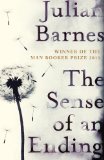Summary | Excerpt | Reading Guide | Reviews | Read-Alikes | Genres & Themes | Author Bio

The Blind Assassin is a richly layered and uniquely rewarding experience, told in a style that magnificently captures the colloquialisms and clichés of the 1930s and 1940s.
Margaret Atwood takes the art of storytelling to new heights in a dazzling new novel that unfolds layer by astonishing layer and concludes in a brilliant and wonderfully satisfying twist.
For the past twenty-five years, Margaret Atwood has written works of striking originality and imagination. In The Blind Assassin, she stretches the limits of her accomplishments as never before, creating a novel that is entertaining and profoundly serious.
The novel opens with these simple, resonant words: "Ten days after the war ended, my sister drove a car off the bridge." They are spoken by Iris, whose terse account of her sister Laura's death in 1945 is followed by an inquest report proclaiming the death accidental. But just as the reader expects to settle into Laura's story, Atwood introduces a novel-within-a- novel. Entitled The Blind Assassin, it is a science fiction story told by two unnamed lovers who meet in dingy backstreet rooms. When we return to Iris, it is through a 1947 newspaper article announcing the discovery of a sailboat carrying the dead body of her husband, a distinguished industrialist.
Told in a style that magnificently captures the colloquialisms and clichés of the 1930s and 1940s, The Blind Assassin is a richly layered and uniquely rewarding experience. The novel has many threads and a series of events that follow one another at a breathtaking pace. As everything comes together, readers will discover that the story Atwood is telling is not only what it seems to be--but, in fact, much more.
The Blind Assassin proves once again that Atwood is one of the most talented, daring, and exciting writers of our time. Like The Handmaid's Tale, it is destined to become a classic.

If you liked The Blind Assassin, try these:

by Julian Barnes
Published 2012
A novel so compelling that it begs to be read in a single sitting, with stunning psychological and emotional depth and sophistication, The Sense of an Ending is a brilliant new chapter in Julian Barnes's oeuvre.

by Marianne Wiggins
Published 2008
The Shadow Catcher dramatically inhabits the space where past and present intersect, seamlessly interweaving narratives from two different eras: the first fraught passion between turn-of-the-twentieth-century icon Edward Curtis (1868-1952) and his muse-wife, Clara; and a twenty-first-century journey of redemption.